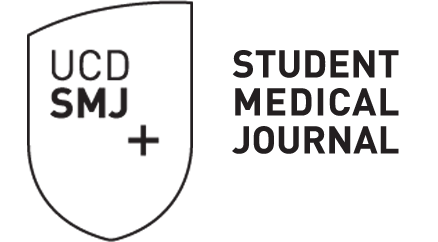ADDRESS BY DR JASON LAST
MB, BAO, MSc, FRCSI
Associate Dean
Director of Educational Innovation
UCD School of Medicine & Medical Science
The landscape of biomedical and clinical practice changes so rapidly that it is impossible for any medical education institu- tion to accurately predict the factual knowledge to which our doctors, radiographers and scientists of the future should be exposed. This circumstance has led to an educational revolu- tion that reduces the burden of fact, places greater emphasis on knowledge discovery and retains only those techniques, tools and tenants that remain fit for purpose. Juxtaposed to this knowledge explosion is the increasing clarity that the role of the doctor in caring, in healing and in patient advocacy remains steadfastly central to clinical practice. In turn, the role of the radiographer is increasingly advanced and diagnostic and that of the clinical scientist is exponentially pioneering. It is for these reasons that it is most gratifying to witness the UCD Student Medical Journal, emerging from this new generation of schol- ars, a testament to the importance of knowledge discovery, the central role of caring and the ambition to advance.
Within the pages of this volume are articles that have been penned or commissioned by students of the UCD School of Medicine & Medical Science, that explore perspectives inspired by both curricular activities and life experiences. Knowing the UCDsmj team, I am delighted but not surprised, to note that they have managed to craft a powerful vehicle for their peers, and have maintained a perfect balance between science, tech- nology and personal reflection.
Having considered the local academic and social virtues of this entirely student-led initiative, let us not lose sight of the other fundamental values that this journal respects. In the context of the increasingly bleak economic environment, the temptation is to not invest in new knowledge but to batten down the hatches and ride the storm. Terms such as 'prioritisation' are used to blunt the reality of the cuts and the austerity society faces. The aca- demic community is not immune to these cuts, nor should it be, but it is unfortunate that one key area of such prioritisation has been journal access in the Health Sciences library.
“Dort, wo man Bücher verbrennt, verbrennt man am Ende auch Menschen” *
Although this excerpt from a 19th Century play by Heinrich Heine is best known for its tragic and prophetic reality in association with the memorial to the Berlin book-burning of 1933, the signifi- cance of the statement may also be interpreted metaphorically. Just as the knowledge of the past may be used to build on new knowledge to the benefit of mankind, perhaps also the inacces- sibility of past knowledge may lead to a lack of creation of new knowledge to the ultimate detriment of mankind. Thus, in an en- vironment where we are narrowing our access to knowledge, the first edition of the UCDsmj is a beacon of light, widening access and providing an educational forum for the students of the UCD School of Medicine and Medical Science.
Considering once more the new UCDsmj, many have been in- volved, but I would like to pay tribute to Norella Broderick who helped initiate the venture and to the leadership and determina- tion of both Denise Connolly and Aileen Conway who brought the UCDsmj to fruition. The future success of this journal is now dependent on the staff and students of the School, past, present and future, to maintain the momentum achieved in the production and publication of this foundation edition.
* “Where they burn books, they will, in the end, also burn people.” Translated from Almansor: A Tragedy (1821) by Heinrich Heine


